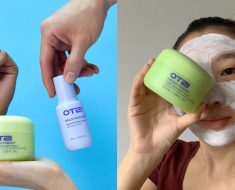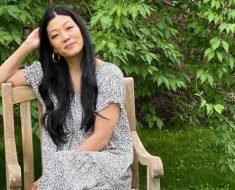MILAN — Pitti Fragranze is upping its game.
Running Sept. 13 to 15 in Florence’s Stazione Leopolda, the niche perfumery trade show, which has secured 150 exhibitors so far, has fine-tuned its program by introducing a wider focus on skin care and a special guest project, among other initiatives.
In addition to the olfactory offer, which will see established brands such as Byredo, Diptyque and Penhaligon’s exhibit for the first time at the show as well as emerging labels continuing to be showcased in the dedicated spring section, Pitti Fragranze will present indie skin-care players in partnership with the Muse & Heroine sales agency that promotes clean beauty brands.
“We decided to do a special focus this year because skin care is an ever-growing category,” said show organizer Pitti Immagine’s general director Agostino Poletto on Monday.
The skin-care selection will comprise K-beauty and J-beauty brands, as well as Scandinavian labels to show different approaches to the theme, ranging from Korean multistep skin-care routines to North European basic products leveraging natural ingredients.
“The cosmetics industry is really appealing for us, we’re entering in this arena with Pitti Fragranze, but we’re already thinking of bringing a selection of men’s skin care brands at Pitti Uomo soon,” added Poletto.
The 17th edition of the fragrance show will also mark the debut of the special guest format. The first guest will be master perfumer Jean-Claude Ellena, whose best-known scents will flank a range of personal images in an interactive installation that will be set up at the venue. Ellena will be in attendance to additionally hold a panel retracing his career on Sept. 13.
“We want to promote olfactory culture, but also discuss business trends and the evolution of distribution for this industry,” continued Poletto. To this end, in September Pitti Fragranze will release its second study providing figures on the state of the European artistic fragrance business. Last year the research centered on investigating the size and future growth of the industry, while this time it will focus on evaluating the economic sustainability of European niche brands’ business models. The study also will forecast the future of distribution, especially in Italy where the number of independent perfumery stores is still significant.
In particular, the study will weigh in on the consequences of the acquisitions of artistic fragrance houses by big beauty multinationals and the impact of e-commerce on traditional, physical distribution.
A range of talks and seminars that will be staged at the venue will highlight the importance of training sales assistants in perfumeries to better convey the storytelling behind artistic scents and the impact of design in conceiving brick-and-mortar and online stores.
“There’s the urgent need of redefining physical stores, which will have to reverse their approach in offering an experience of purchase into offering the purchase of an experience,” said Poletto on the topic.
For the fifth year in a row, French flavors and fragrances producer Mane will host a talk on raw materials. After the bergamot, patchouli, pepper and vanilla-themed editions, this year Mane’s team of experts will illustrate and discuss woods accords.
To involve a wider audience and further promote olfactory culture, organizers and exhibitors will keep staging events and in-store activities outside the Stazione Leopolda venue during the three-day trade show. Among these, the city’s Rinascente department store will house “The Art of Fragrance” section on the revamped fourth floor to showcase a selection of made-in-Italy artistic fragrances for a month.
Last year, Pitti Fragranze attracted 2,150 buyers from 50 countries. Increases came from Germany (up 15 percent) and Spain (up 12 percent), as well as Middle Eastern and Asian buyers, while the number of visitors from France and the U.S. was relatively flat.
Source: Read Full Article





